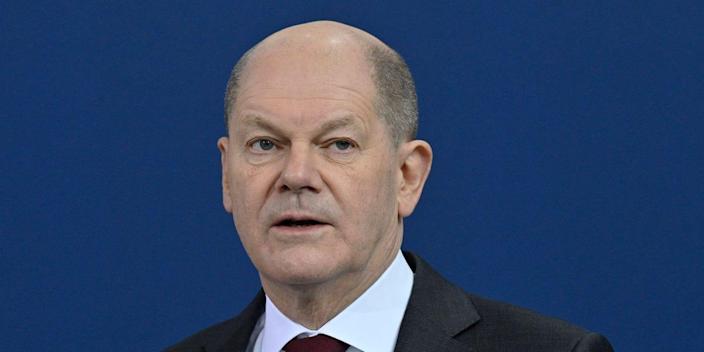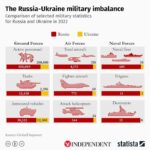
-
Germany axed the Nord Stream II pipeline deal after Russia moved forces into Ukraine.
-
Putin ordered Russian forces into pro-Kremlin areas of eastern Ukraine late Monday.
-
The pipeline connects Russia gas fields to Europe, and was fiercely opposed by the US.
Germany on Tuesday scrapped plans for the Nord Stream II pipeline, after Russian President Vladimir Putin sent troops into Ukraine.
During an address on the Ukraine crisis Tuesday, German Chancellor Olaf Scholz said he decided to “reassess” the certification, a necessary approval for its to start moving gas from Russia to Europe.
“In light of the most recent developments we must reassess the situation in particular regarding Nord Stream 2,” he said. “The situation has fundamentally changed.”
It was the first significant economic consequence for Putin’s Russia after its escalation of the conflict in Ukraine. The US, EU, and UK also promised economic sanctions would be announced later on Tuesday.
Reports from eastern Ukraine late Monday showed Russian tanks moving into the rebel-held areas of the Donetsk and Luhansk regions of Ukraine, seeming to fulfil Putin’s command for a “peacekeeping” mission there.
Scholz said Tuesday that Germany would find new ways to meet its energy needs without the Nord Stream II.
The pipeline provides a route between Russian gas production sites and mainland Europe. Earlier pipes went via Ukraine. Work was completed in September 2021, though it could not begin piping gas without certification from Germany.
The pipeline, mostly owned by Russian gas corporation Gazprom, cost 10 billion euros ($11.5 billion) and was meant transport 55 billion cubic meters of natural gas each year.
Ukranian foreign minsiter Dmytro Kuleba praised Scholz in a tweet Tuesday, saying “true leadership means tough decisions in difficult times.”


The US said in late January that the pipeline would not open should Russia invade Ukraine.
“We will work with Germany to ensure it does not move forward,” State Department spokesperson Ned Price said at the time.
The US has long been concerned about the project. Its officials worried that new infrastructure between Russia and Europe would deepen its dependence on Russia for energy and makes European nations less likely to challenge Russia.
During the Trump administration, the US sanctioned a number of Russian companies working on the pipeline. Those restraints were lifted in May 2021, though US secretary of state Anthony Blinken continued to term the project “a bad deal — for Germany, for Ukraine, and for our Central and Eastern European allies and partners.”
Read the original article on Business Insider




